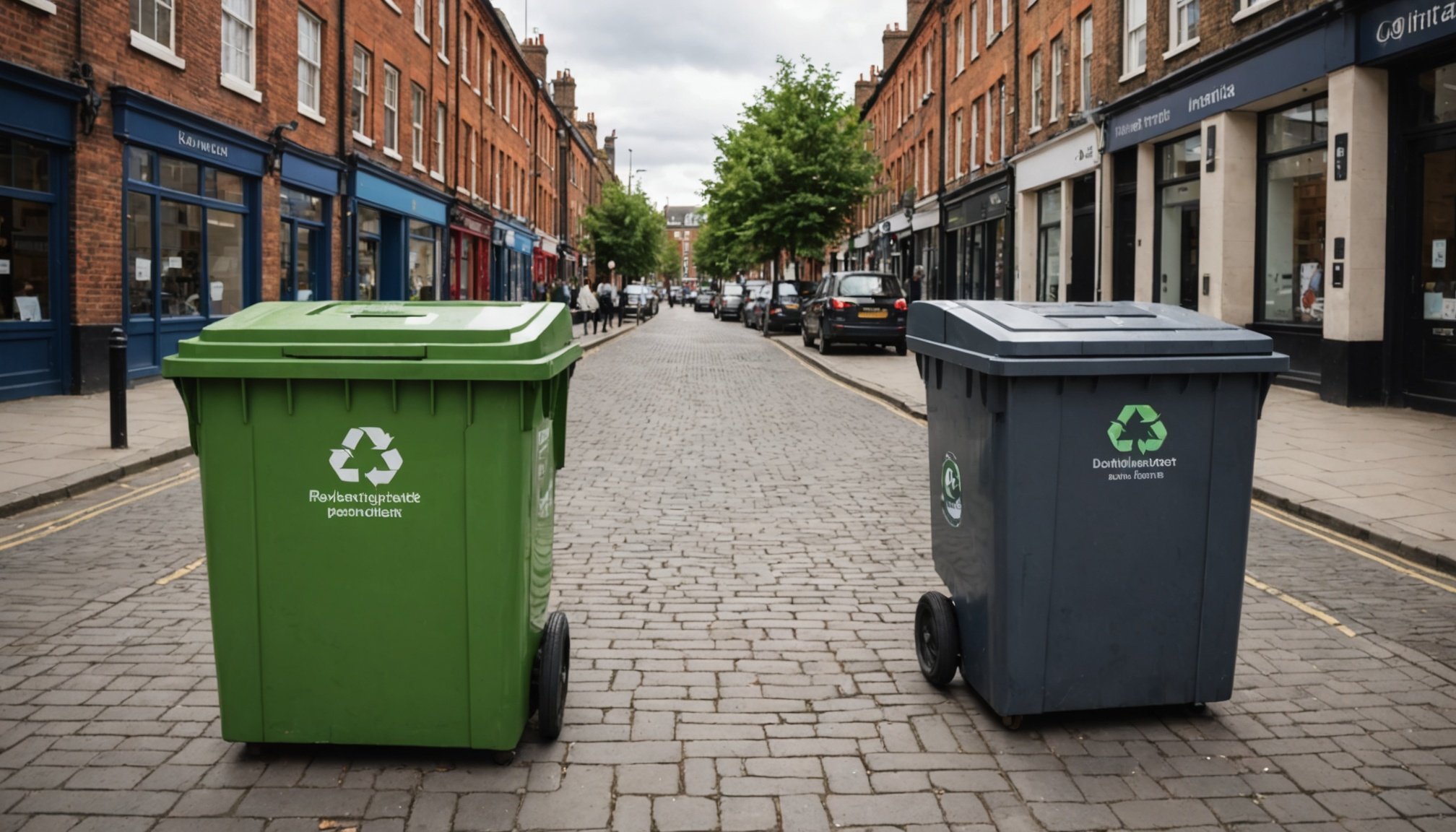Overview of Intelligent Waste Management Systems
Intelligent waste management systems integrate modern technology to revolutionise traditional waste disposal methods. Utilising data analytics, IoT, and AI, these systems monitor waste levels and optimise collection routes. Such innovations are pivotal in addressing the urban sustainability challenges faced by UK cities today. In fact, it’s estimated that London’s waste production alone will increase by 20% in the next decade, stressing the need for efficient solutions. By implementing intelligent systems, municipalities can handle this growing demand while promoting environmentally friendly practices.
The significance of technology in waste management cannot be overstated. Traditional methods often lead to inefficiencies and increased environmental burdens. Conversely, intelligent solutions offer real-time data collection and predictive analytics, allowing cities to address issues proactively. Incorporating smart bins and automated sorting not only enhances operational efficiency but also reduces costs associated with manual processes.
Also read : Find your match: free online dating for women in sweden
Urban areas benefit greatly from these advanced systems. As cities grow, waste production escalates, necessitating innovative strategies to maintain cleanliness and sustainability. Intelligent waste management integrates seamlessly into existing urban sustainability frameworks, ensuring cities can sustain their growth without compromising environmental health or depleting resources. This progression is essential for achieving both local and national ecological targets.
Benefits of Intelligent Waste Management Systems
Intelligent waste management systems offer numerous advantages, significantly improving how waste is handled in urban environments. At the forefront, these systems enhance efficiency in waste management by optimising collection routes and reducing unnecessary pickups, which lowers operational costs for municipalities. For instance, smart technology has aided cities in cutting down on fuel consumption and labour costs, making them more resource-efficient.
Also to read : Revamping Urban Mobility: Enhancing UK Traffic Flow with Smart Signal Solutions
Furthermore, these systems provide substantial environmental benefits. By reducing landfill waste through better sorting and processing, they decrease reliance on landfills and mitigate associated environmental issues, such as methane emissions. Consequently, intelligent waste management contributes to the reduction of cities’ carbon footprints and promotes sustainability.
Additionally, the benefits extend to enhanced urban living. Residents enjoy cleaner neighbourhoods and streets, thus improving quality of life. The integration of smart waste solutions into broader smart city initiatives fosters community engagement and brings about greater awareness of sustainable practices. Through these systems, cities can effectively achieve both local and national environmental goals, paving the way for a more sustainable future.
Innovative Technologies Driving Intelligent Waste Management
Advancements in waste management technology have paved the way for more efficient and sustainable urban living. The integration of IoT sensors and smart bins is transforming how cities handle waste. These technologies allow real-time monitoring of waste levels, optimising collection schedules, and reducing unnecessary trips, which significantly lowers operational costs. Sensors can notify authorities when bins are full, preventing overflow and ensuring cleaner public spaces.
Artificial intelligence (AI) is also playing a crucial role in waste sorting. AI systems enhance the accuracy of identifying and categorising waste materials, which boosts recycling rates and reduces landfill contributions. In UK cities, AI-powered waste systems have demonstrated success by decreasing sorting errors and increasing recycling efficiency. With continuous advancement, AI holds the potential to revolutionise waste processing further.
Further innovation lies in the integration with other urban systems. Such connectivity enhances waste management initiatives by linking with transportation and recycling infrastructures, creating feedback loops that promote continuous improvement. By aligning with smart city frameworks, waste management becomes a cooperative part of broader urban sustainability efforts, contributing to achieving national environmental goals.
Case Studies from UK Cities
Examining real-world implementations of intelligent waste management in UK cities offers valuable insights.
Case Study: London
London has pioneered various intelligent waste systems to address its growing waste challenges. The implementation of smart bins equipped with IoT sensors has optimised collection routes, reducing both operational costs and environmental impact. Post-implementation, statistics reveal a 15% reduction in waste-related city congestion and a noticeable decrease in fuel consumption for collection vehicles. This success showcases the potential scalability of such systems, despite initial challenges in technology adoption and integration with existing infrastructures.
Case Study: Manchester
Manchester’s foray into smart waste initiatives demonstrates the impact on local environments and community satisfaction. Collaborating with technology firms, the city adopted AI-enhanced sorting facilities, which improved recycling rates by 20%. This collaboration paved the way for new community engagement programmes that increased public awareness of sustainable practices. By aligning technology with municipal goals, Manchester has fostered a culture of sustainability.
Case Study: Bristol
Bristol’s innovative strategies focus on public participation and education. By integrating AI for waste sorting and implementing community-led workshops, the city has achieved a significant reduction in waste production. Its proactive approach highlights the importance of public involvement in successful waste management.
Challenges and Considerations in Implementation
Implementing intelligent waste management systems presents several challenges and requires careful planning. One common barrier is the need for substantial investment and funding. Transitioning from traditional methods to advanced technologies often demands significant financial resources. Cities must weigh the potential long-term savings against initial costs to ensure investments are justified.
Urban planning obstacles also pose challenges. Integrating smart systems into existing infrastructures can be complex. It requires meticulous coordination between municipal bodies, waste management firms, and technology providers. Balancing infrastructure compatibility with innovation is crucial for seamless implementation.
Another key factor is technology adoption. While innovations offer clear benefits, resistance can occur among stakeholders accustomed to traditional practices. Education and training programs are essential to facilitate smooth adoption and leverage the full capabilities of intelligent systems.
Furthermore, data security and privacy concerns must be addressed, especially when using IoT devices for real-time monitoring. Ensuring that data is protected and used ethically is paramount.
To overcome these challenges, stakeholder collaboration is vital. By engaging various sectors, cities can align objectives and foster supportive environments for waste management innovations. This cooperation ensures sustainable solutions that benefit both urban environments and their inhabitants.
Future Implications for Urban Living
Exploring the future of urban waste management reveals promising avenues for more sustainable cities. As smart city development takes root, these systems will likely be central to urban planning, integrating seamlessly with other urban frameworks to boost sustainability and efficiency. Future-proofing urban environments hinges on developing adaptable waste management technologies.
Policy and Regulation
Legislation supporting intelligent waste management may evolve, playing a pivotal role in standardising systems across cities. Local governments are crucial in driving policy changes, encouraging widespread adoption of innovative waste solutions. Stakeholder collaboration ensures these policies are comprehensive and aligned with both environmental goals and technological advancements.
Scaling Solutions Citywide
Broadening the reach of smart waste technologies hinges on community support and effective strategies. Leveraging pilot programs’ lessons allows cities to expand systems efficiently, ensuring community buy-in and smooth transitions. By showcasing measurable environmental and operational benefits, stakeholders can advocate for broader implementation.
Integrating Circular Economy Principles
Intelligent waste systems can advance circular economy practices by promoting resource recovery and reducing landfill reliance. Cities aiming for zero waste can learn from current success stories and apply best practices to urban planning, embedding sustainability deeply within resource management. This integration promises a forward-looking approach to urban resilience and waste reduction.


